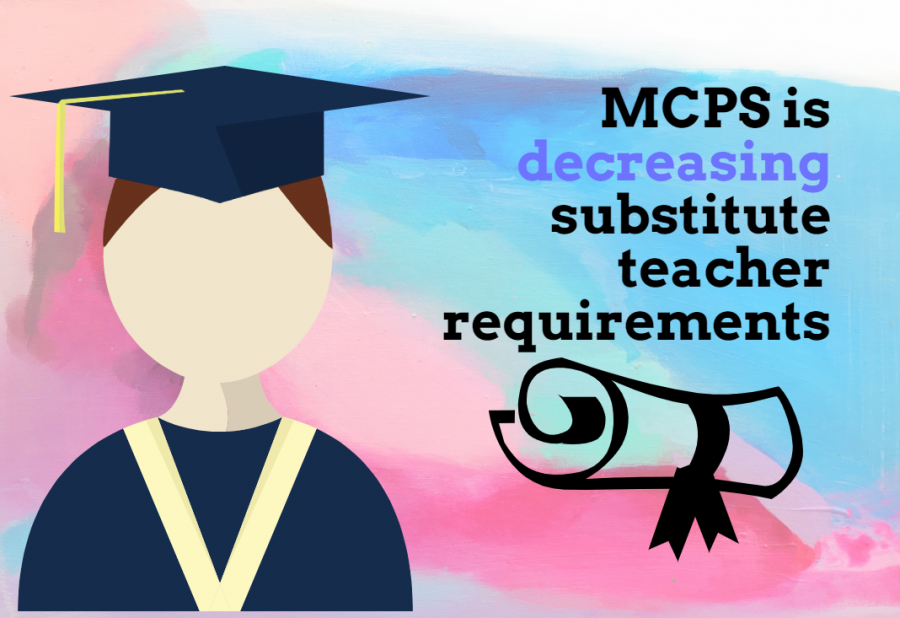MCPS looks to lower substitute teacher requirement
May 4, 2019
Due to a recent decrease in the availability of substitute teachers, the Montgomery County Board of Education is exploring lowering the qualification requirements for the position. The Board is expecting a report in the summer with information about the lack of substitute teachers and whether lowering the requirements could potentially fix the problem.
Current policy requires substitute teachers to have at least a bachelor’s degree or a certificate from a teacher education program. The Board is now considering also accepting individuals with associate’s degrees or students at Montgomery College that need teaching experience to graduate.
“It’s not an ideal situation,” Board Member Pat O’Neill said. “When we don’t have a sub, sometimes paraeducators are pulled in, or teachers are pulled in to cover other classes.”
Substitute teachers are in very short supply across the country, according to the American Association of School Administrators. The AASA attributes this to high requirements for substitute teachers and recommends lowering these requirements in order to help supply reach demand.
Whitman hasn’t faced this problem yet, secretary Blenda Legrande said. However, many other Montgomery County schools have. Caitlin Derenberger, a social studies at Northwest High School, has felt the impact of this shortage first-hand.
“Even with advanced notice, a sub doesn’t always pick up the job,” she said. “As a resource teacher, I’ve noticed that more teachers in my departments are out without subs, so their classes are covered by other teachers in the building.”
When no substitute is found, other teachers in the building must cover for each other, missing out on valuable planning periods or their lunch time.
O’Neill says finding enough subs has always been difficult, and she’s ready to adjust requirements if need be.
“It’s been a problem, a long-standing problem,” O’Neill said. “People would prefer regular, steady work; it can be a frustrating experience being a sub. We are going to look at other jurisdictions and see what their requirements are for substitutes [and] how other districts handle this problem.”








